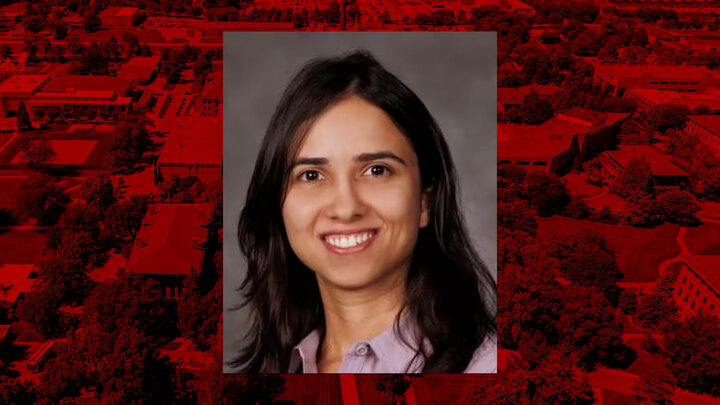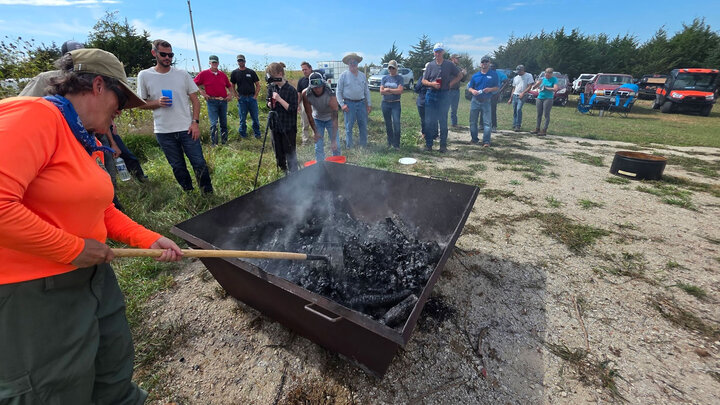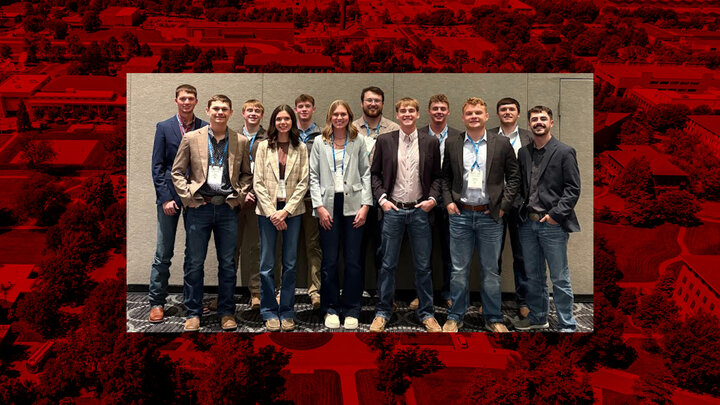Six University of Nebraska–Lincoln agronomy students took top honors at the 2018 North Central Weed Science Society Meeting held Dec. 4-6 in Milwaukee, Wisconsin. The six include graduate students Jesaelen Gizotti de Moraes, Estefânia G. Polli, and Alexandre Tonon Rosa and undergraduate students Isidor Ceperkovic, Andrea Rilakovic, Rosa Soriano and Jasmine Mausbach.
Jesaelen Gizotti de Moraes
Estefânia G. Polli
Alexandre Tonon Rosa
Jasmine Mausbach
Moraes, a doctoral student advised by Greg Kruger, received second-place in the graduate student research video contest. Her video described the OCA 15EC, a professional contact angle measurement and drop shape analysis device, used in their lab. This piece of equipment allows them to perform analysis of contact angle and surface tension of different solutions.
Her research focus is on dicamba applications which have been highly scrutinized over the last two years. Further investigation is needed in order to draw conclusions about its performance and off-target movement. Research projects have been developed and will be used to better understand the impact of dicamba applications on droplet size, contact angle, evaporation rate, absorption and weed control. Moreover, studies will be conducted to characterize the impact of tank-mix partners on the pattern uniformity, coverage and efficacy of dicamba applications.
Polli received first-place for her Extension/education graduate student video titled “Spray Drift of Pesticides.” The video is about spray drift or the movement of pesticide away from the target area to an unintended site. This event can cause problems such as damage to susceptible off-target sites, reduction in the effectiveness of the pesticide, waste of pesticide and money, and environmental contamination. Putting effort to minimize drift is imperative. Strategies used to reduce drift in field applications include checking pesticide label information, sprayer and weather conditions.
Polli’s research focus is to evaluate the effects of adjuvants on herbicide efficiency and improve pesticide application technology strategies. She is a master’s student advised by Kruger.
First-place graduate student poster in the corn division of agronomic crops went to Tonon Rosa with a poster titled "Impact of Wheat Stubble Management and Cover Crop Selection on Weed Demographics and Corn Productivity in Semi-Arid Cropping Systems of Western Nebraska.” His advisors are Cody Creech, assistant professor of agronomy and horticulture, and Roger Elmore, agronomy and horticulture professor, Nebraska Extension cropping systems specialist, Heuermann Chair and Daugherty Water for Food Global Institute Faculty Fellow.
Tonon Rosa’s research is focused on cover crop management in western Nebraska. He is evaluating the effects of cover crops on soil water use, weed suppression, nutrient dynamics and subsequent corn productivity when cover crops are planted after winter-wheat on a traditional wheat-corn-fallow rotation.
Undergraduate students advised by Kruger received awards in the undergraduate poster contests.
Ceperkovic received first-place in equipment and application methods with a poster titled “Grass Weed Control from Glyphosate and Clethodim Applications as Affected by Surfactants.”
Rilakovic received second-place in equipment and application methods with a poster titled “Spray Drift from Mesotrione and Isoxaflutole through Different Nozzle Types.”
Soriano placed first in agronomic crops II section with a poster titled “Injury and Symptomology Caused by Simulated Drift of Dicamba-Containing Herbicides on Soybean.”
Mausbach received second-place in the undergraduate poster soybean section of agronomic crops with a poster titled “Control of Glyphosate-Resistant Palmer Amaranth in Isoxaflutole/Glufosinate-Resistant Soybean in Nebraska." Mausbach is currently a master’s student advised by Amit Jhala. Her research focus is on how water stress affects weed biology.
Jose Scarparo De Sanctis, Adam Leise and Jasmine Mausbach, students in Jhala Lab, received NCWSS travel awards.
NCWSS provides these competitive travel awards to a few weed science students attending conference for the first time.



